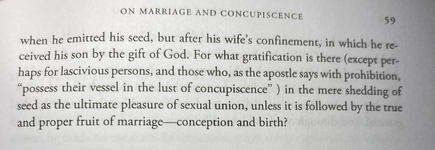Since there is no unified Orthodox position on this, I think it's very much a case where you need to ask a priest when you get married. Of course, I think there is a difference between oral sex as foreplay preceding intercourse, and oral sex performed alone to completion. The latter is pure hedonism, while the former can further the spiritual goals of marriage including communion with your wife and procreation. At least that's how it seems at first glance.I think that's an issue of desensitization towards sexual acts. My take is that if people practiced more restraint in terms of sexuality, then our "standard repertoire" would probably look more modest. I don't think fellatio itself is such a big deal, but technically, it is a sexual act that is geared solely towards pleasure. Then again, it is practiced among loving married couples, and usually not excessively.
Ultimately, I guess you'd have to ask a priest. I have obviously only been in premarital relations prior to my baptism, and I imagine that the attitude towards sex is somewhat different when you do it the right way, with premarital chastity between man and woman.
The big issue about fellatio is that when you go back in history, this is what got people hooked on the idea of sexual adventure and pornography when the Jews brought out Deep Throat in the 1970s. It basically turned sex from an intimate activity into an event for excitement in the mainstream.
So culturally, I am against fellatio the way people talk about it. I don't personally think it's bad when married couples do it, but it does represent an attack on Christian culture.
What is interesting though is that we know sodomy has very many negative physical and psychological consequences. These include a monumentally huge risk of STDs, the frequent occurrence of rare gastrointestinal diseases, extensive anal trauma, and lower life expectancy and elevated depression and suicide risk (at least for homosexuals). Which seems to be God's way of telling us to stay away from it. But I don't see any such negative consequences of fellatio unless they are very subtle.

